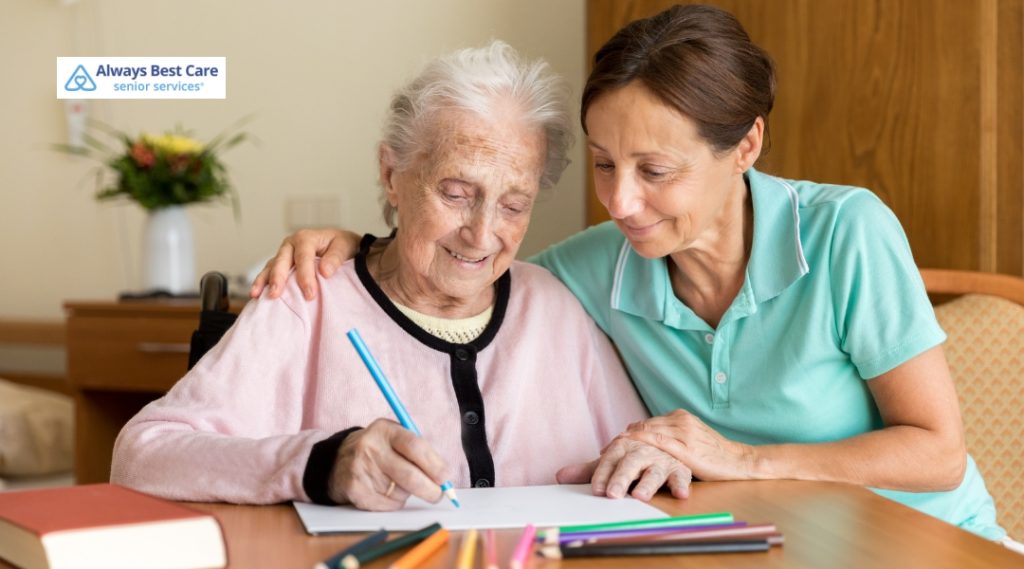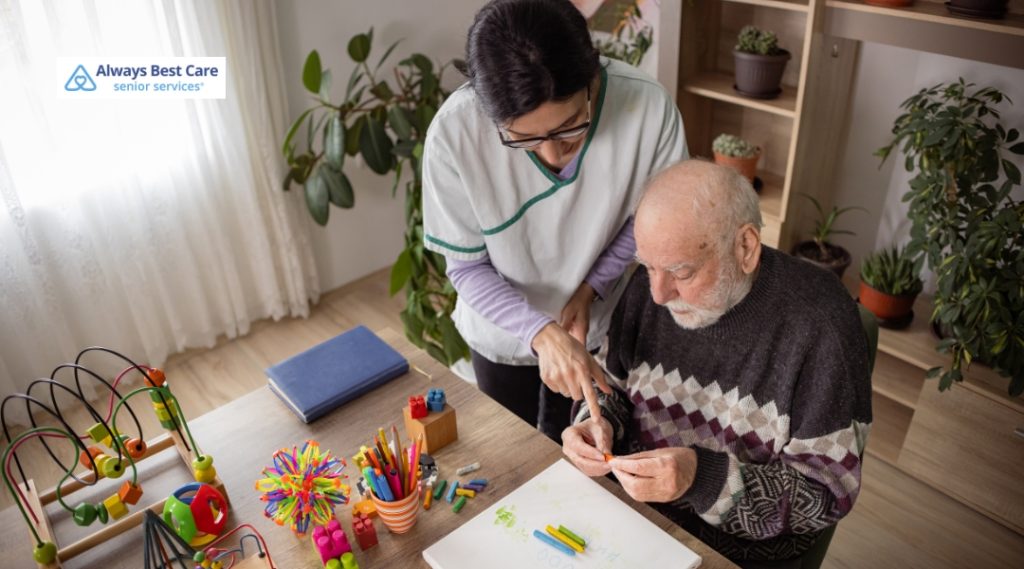Early Signs of Dementia You Shouldn’t Ignore in Shalimar, FL

As we age, it’s normal to experience some memory lapses or forgetfulness. However, there’s a fine line between typical aging and the early signs of dementia. It’s crucial to recognize these signs early on to ensure timely intervention and support.
In this article, we’ll explore the differences between normal aging and dementia, highlight key warning signs, and discuss how early detection can make a significant difference.
What you will learn:
- The difference between normal aging memory changes and early signs of dementia.
- Seven key warning signs that could indicate the onset of dementia.
- Why early detection is important for better care planning and management.
- How in-home care can support loved ones with dementia by promoting safety, independence, and companionship.
Table of Contents
Normal Aging vs. Early Dementia
Normal aging often involves forgetfulness that doesn’t disrupt daily life. For instance, a senior might take a bit longer to recall a word or forget why they walked into a room, but the information usually comes back. They can still manage household tasks, keep appointments, and make sound decisions.
On the other hand, dementia is a progressive condition that interferes with memory, communication, reasoning, and judgment, eventually requiring full-time care.

7 Key Dementia Signs You Shouldn’t Ignore
Here are some critical signs of early dementia:
- Frequent Memory Loss That Disrupts Daily Life: Forgetting recently learned information and relying heavily on notes or others for tasks they once managed independently.
- Difficulty Completing Familiar Tasks: Struggling with tasks like following a recipe, balancing a checkbook, or operating appliances they’ve used for years.
- Trouble Finding Words or Following Conversations: Difficulty expressing thoughts or understanding others, often pausing, repeating themselves, or struggling to name everyday objects.
- Poor Judgment or Decision-Making: Giving away large sums of money, neglecting hygiene, or dressing inappropriately for the weather.
- Confusion About Time or Place: Getting lost in familiar places, forgetting how they got somewhere, or becoming confused about the date or season.
- Changes in Mood or Personality: Unusual irritability, depression, anxiety, or withdrawal from social activities.
- Misplacing Items and Losing the Ability to Retrace Steps: Putting items in unusual places and being unable to find them again without help.
Early Detection Matters
Early detection of dementia is vital for effective management and planning. It allows for timely intervention, access to resources, and family involvement.
If you notice any of these signs in a loved one, it’s essential to consult a healthcare provider for a professional evaluation.

How In-Home Care Can Help
Caring for a loved one with dementia can be emotionally and physically challenging. In-home care can provide much-needed support by helping with daily tasks, encouraging mental stimulation, and offering companionship.
At Always Best Care of Shalimar, our caregivers are trained to recognize early symptoms of cognitive decline and keep families informed about changes. They ensure your loved one is safe, supported, and able to maintain as much independence as possible.
FAQ
Q: What are the early signs of dementia?
A: Early signs include frequent memory loss, difficulty with familiar tasks, trouble finding words, poor judgment, confusion about time or place, mood changes, and misplacing items.
Q: How does normal aging differ from dementia?
A: Normal aging involves forgetfulness that doesn’t disrupt daily life, while dementia is a progressive condition affecting memory, communication, and judgment, requiring full-time care.
Q: Why is early detection important?
A: Early detection allows for timely intervention, better management, and access to resources, improving quality of life.

Schedule Your Complimentary Consultation at Always Best Care of Shalimar!
If you’re concerned about memory changes in someone you care about, don’t wait to take action. Contact Always Best Care of Shalimar at (850) 797-8710 for a care consultation. Our experienced team can help you understand your options and create a care plan tailored to your loved one’s unique needs. Early support matters—and you don’t have to navigate it alone.





